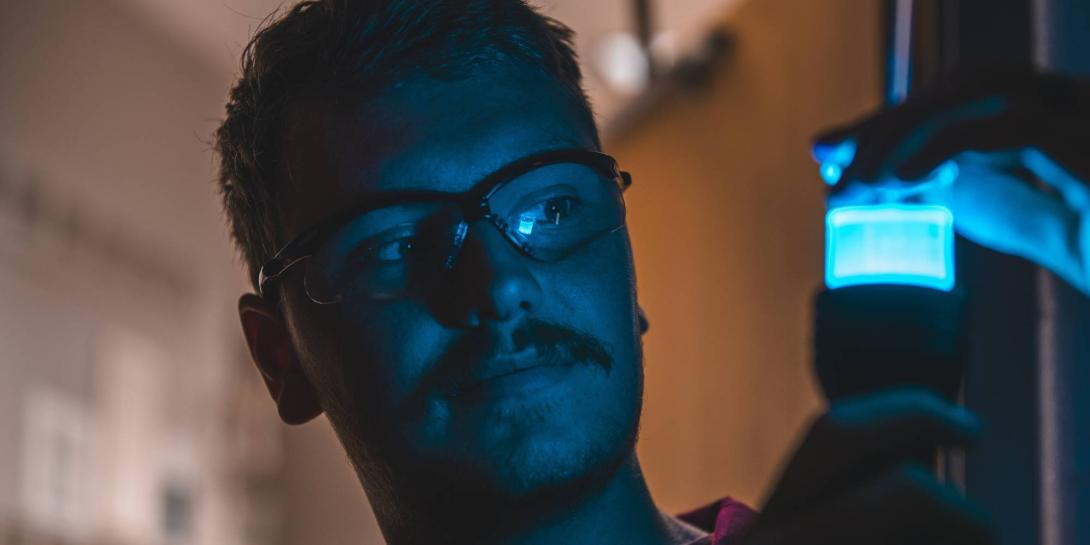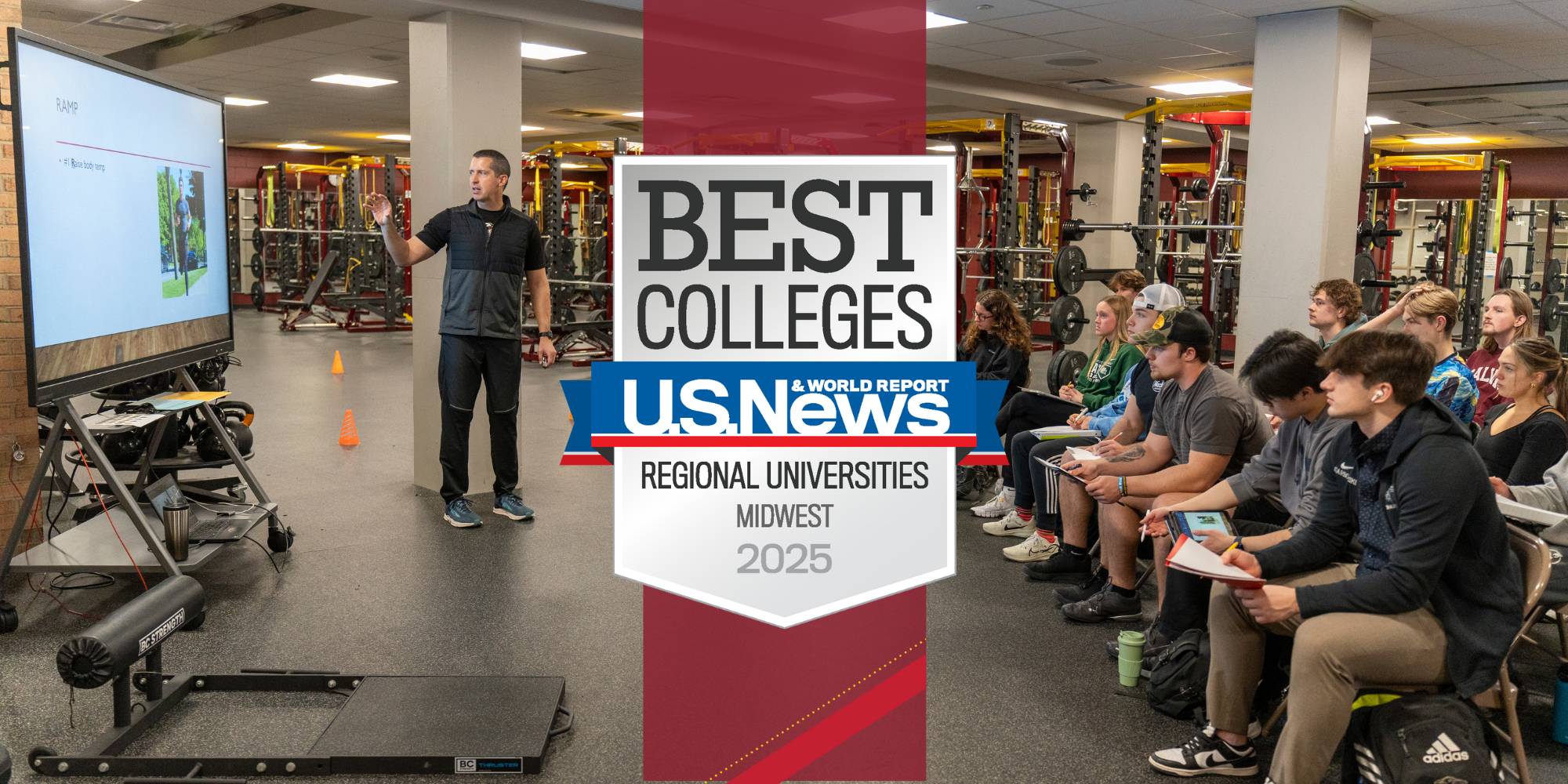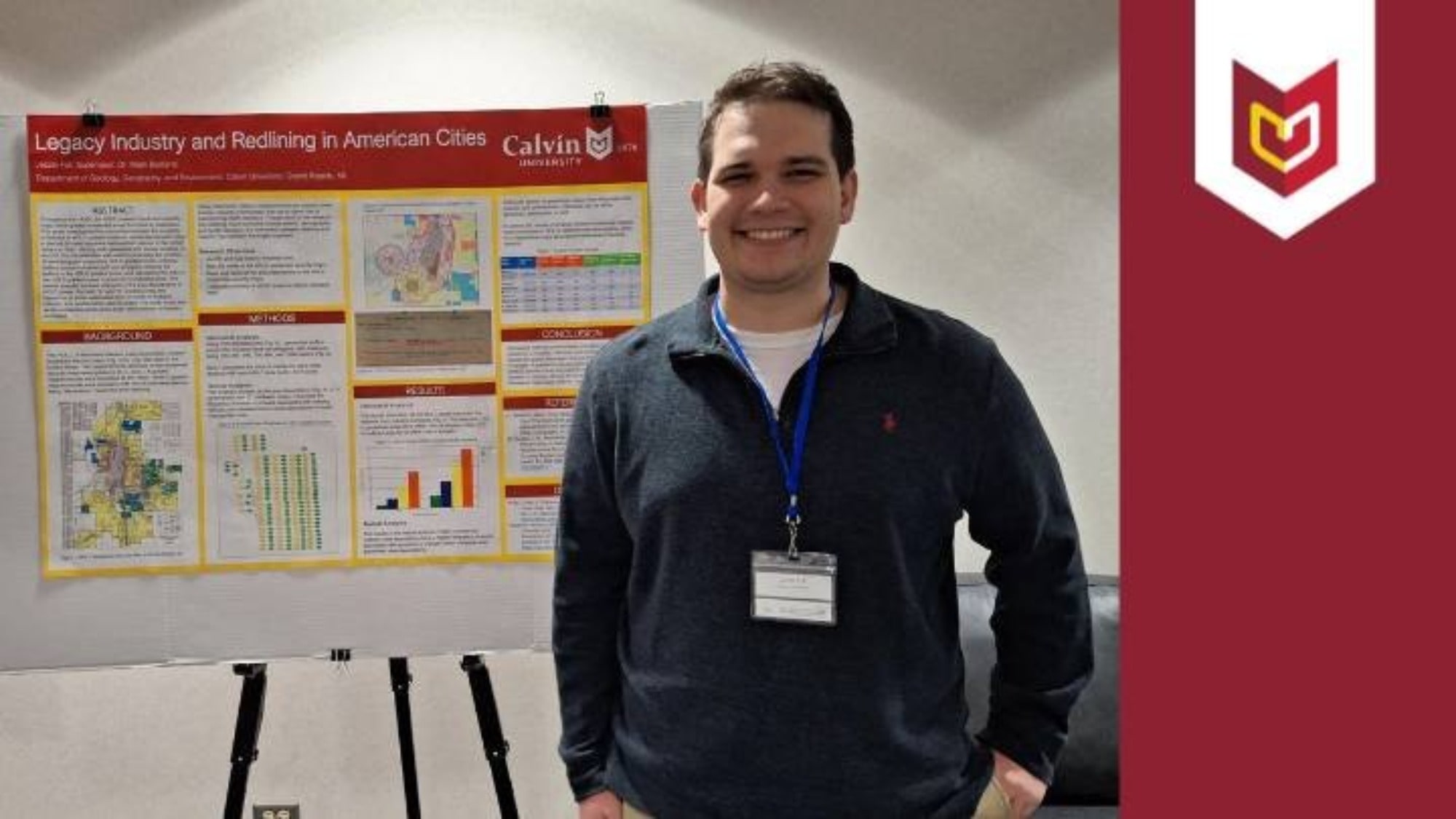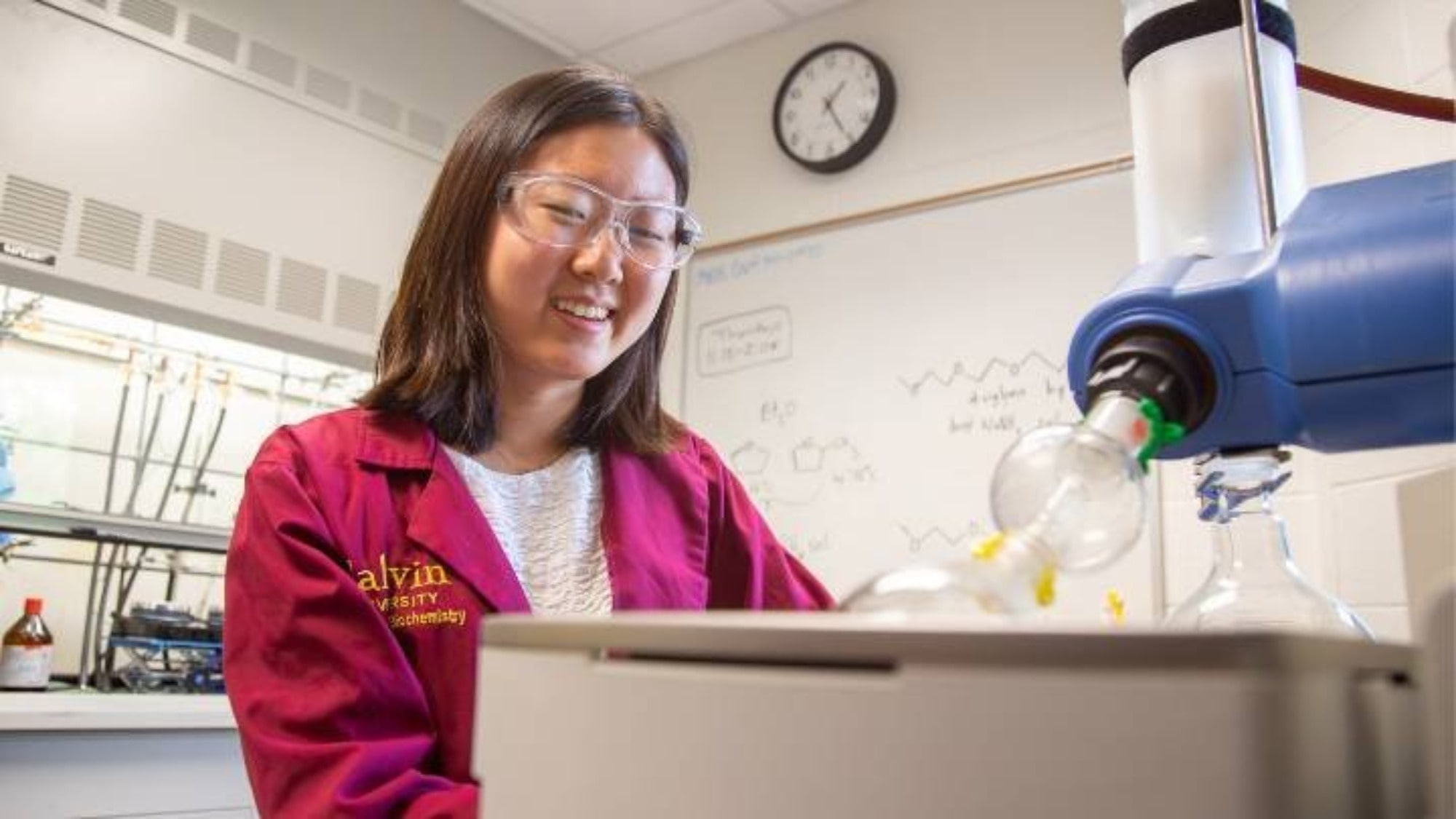Carnegie Classification recognizes Calvin University’s commitment to research

Every year, dozens of professors partner with more than 100 students on research projects that span all STEM fields and the humanities, arts, and social sciences.
Excellent teaching or robust research and scholarship.
“It’s not either/or at Calvin,” said David Wunder, dean for faculty development and research initiatives. “It’s both/and.”
Those words by Wunder are being backed up by some of the most respected third-party evaluators of higher education.
Lauded for research and teaching
This week, the Carnegie Classification gave Calvin University the designation of Research College and University (RCU). To receive this designation, the university’s research expenditures must average more than $2.5 million per year over a three-year period.
This comes on the heels of the university being listed by U.S. News & World Report as the best university for undergraduate teaching in its Regional Universities Midwest category.
“Receiving these external validations is significant,” said Wunder. “While teaching is a top priority of our faculty, research and scholarship makes our faculty sharper, more current, and it absolutely enlivens their classrooms. Research informs teaching.”
Research informs teaching
“It seems like the more I dive into research and investigation, the richer my classroom teaching is because I bring fresh insights and excitement into the classroom from the hard work of research,” said Jason VanHorn, director of the Master of Science in GIScience program.

One of VanHorn’s research projects involves helping incarcerated persons returning to society to flourish.
“It is a thrilling thing to dive deep into the geographic literature or the pursuit of building a mapping application for restorative justice and have my students come alongside me in the classroom gaining that knowledge and skill,” said VanHorn. “The more that I am able to engage in research the better instructor I am for my students.”
“The real-life stories of conducting research in the community inform my teaching and preparation of our students for future research as nurse scientists and their knowledge of reproductive health content addressed in my scholarship,” said Adejoke Ayoola, dean of the school of health, whose research focuses on promoting the reproductive health of women of childbearing age and healthy birth outcomes.
Benefits beyond the classroom
While students reap the classroom benefits of their professors being active researchers and scholars, many students also have the opportunity to partner with their professors on research, which leads to some impressive outcomes.
“Through the regular financial support of the National Science Foundation, my research has led to six patents and over 40 publications with 36 undergraduate co-authors,” said Doug Vander Griend, professor of chemistry and director of the Clean Water Institute.
One of Vander Griend’s former students, Nathanael Kazmierczak ’20, was named both a Beckman and Goldwater Scholar and became one of just 12 students in the nation to earn a prestigious Hertz Fellowship.

“My Calvin education gave me the research experience and interdisciplinary training that propelled me to a successful graduate career. Through work with Prof. Douglas A. Vander Griend, I learned what it means to take ownership of a research project and see it through to completion. Many undergraduate students at large schools work as peripheral assistants to graduate students and postdocs, but in the liberal arts environment at Calvin, the undergraduates are main researchers in the lab to get the project done. This experience is exceptionally valuable for graduate school, where one is judged less by one’s classroom knowledge and more by one’s ability to conceptualize and execute a scientific study.”
While students in the STEM fields have access to a plethora of research opportunities at Calvin, so too do their peers across various disciplines.
“Most liberal arts colleges have research in the sciences, it’s less common to have research covering the humanities, arts, and social sciences, and most summers we have a full range of research in those areas,” said Mark Bjelland, chair of the geology, geography, & environment department and former administrator of the McGregor Research Program at Calvin. “Most of my student researchers have presented their work at a regional geography conference, and a few have won cash prizes.”

“Some of the research papers I co-authored with students are papers I assign in my classes,” said David Warners, professor of biology, whose research centers on west Michigan’s most contaminated watershed and what needs to be done to help the creek that runs through it to become healthy again. “I think students pay closer attention when they know a study was done here locally and that it was done by people at Calvin. It also helps them realize scientific research is something they could do if they wanted.”
Always on mission
Regardless of whether faculty are engaging students directly with their research or using their discoveries to benefit their students and broader communities, the work they are doing is deeply rooted in the university’s mission.
“We are made in the image of God, and part of that image is the ability to understand the world that is God’s creation,” said Mark Muyskens, professor of chemistry, who researches the physical and chemical properties of substances produced by plants that glow in the dark. “Research and scholarship satisfy the curiosity about how things work and making sense of what we observe in the natural world. Often that understanding aids in taking care of people and the environment.”
“Part of Calvin’s vision is to promote the welfare of the city and the healing of the world,” said Ayoola. “Nursing research based on a community-based participatory research approach helps to address identified health problems in our community. So, nursing interventions designed based on resident-driven solutions promote the health of the families in our city.”
“The reformed tradition of Christianity emphasizes the importance of God’s creation and our responsibility to care for it,” said Warners. “To care for creation well, we need to understand how creation works. Research helps us better understand creation, which leads to deeper appreciation and affection for God’s world.”









